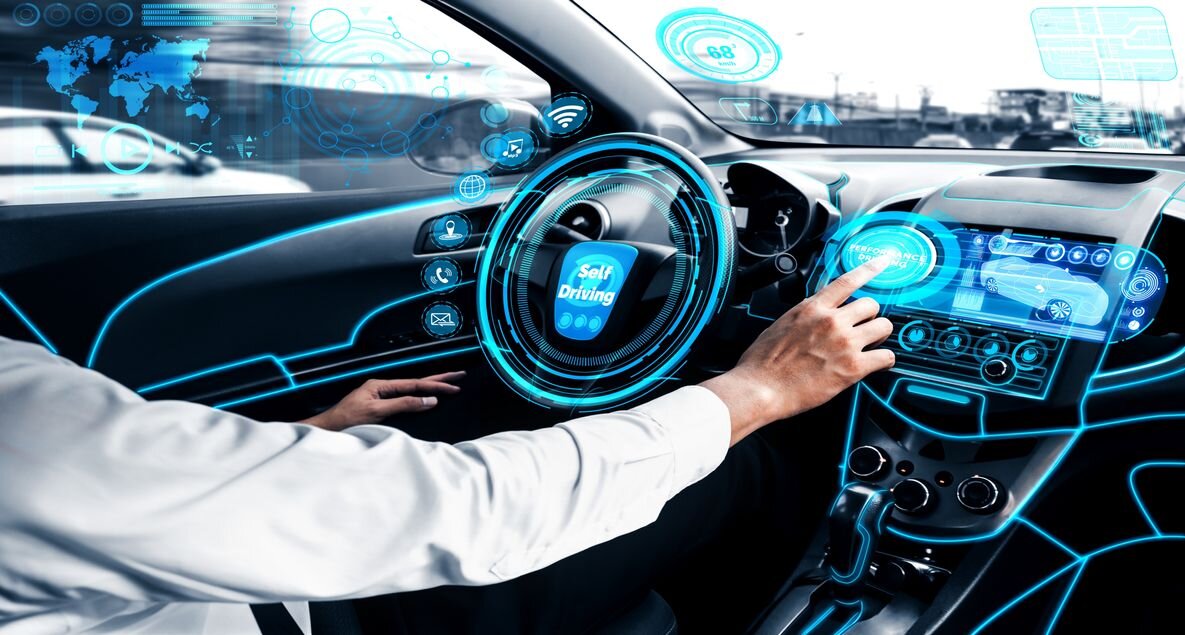Artificial Intelligence (AI) is reshaping industries across the globe, and web development is no exception. In the ever-evolving digital landscape, web developers are continually seeking innovative ways to create more user-friendly, efficient, and personalized websites. AI, with its ability to process vast amounts of data, learn from it, and make predictions, has the potential to revolutionize web development practices in 2024 and beyond. In this dynamic environment, top web development companies in India for 2023-2024 are expected to lead the way in leveraging AI technologies to deliver cutting-edge web solutions to clients worldwide, further enhancing the landscape of web development in the coming years.
This article explores the various aspects of AI’s impact on web development, including its role in automating tasks, enhancing user experiences, improving security, and driving the evolution of web technologies.
Automation of Web Development Tasks
In 2024, AI is expected to play a crucial role in automating routine and time-consuming web development tasks. This automation will lead to increased efficiency, reduced development costs, and faster project completion. Here are some ways AI will automate web development:
Code Generation:
AI-powered tools will generate code snippets and even entire web pages based on designers’ and developers’ inputs. This speeds up the development process significantly and reduces the chances of errors in code.
Bug Detection and Resolution:
AI algorithms can identify and fix code errors, enhancing the reliability of web applications. They can also provide real-time feedback to developers during the coding phase, preventing issues from arising in the first place.
Automated Testing:
AI can perform comprehensive testing of web applications, including functional, security, and performance testing. This ensures that websites are robust and free from vulnerabilities.
Content Generation:
AI-driven content generation tools will become more sophisticated, enabling the automatic creation of website content, blog posts, and product descriptions. This is particularly useful for e-commerce and content-heavy websites.
Enhanced User Experiences
User experience (UX) is a critical factor in the success of any website. AI will continue to enhance UX in 2024 by providing personalized and interactive experiences for visitors. Here’s how:
Personalization:
AI algorithms analyze user behavior and preferences to deliver tailored content and recommendations. This personalization extends to product recommendations, content suggestions, and even website design choices.
Chatbots and Virtual Assistants:
AI-powered chatbots and virtual assistants will offer real-time support, answering user queries and guiding them through websites. These bots are becoming increasingly sophisticated and can provide a human-like interaction.
Voice and Image Recognition:
AI-driven voice and image recognition technologies will enable more natural interactions with websites. Users can speak commands, search using images, and engage with websites through voice commands.
Predictive Analytics:
AI can predict user behavior and provide anticipatory recommendations, improving the overall user journey. For instance, it can suggest related products or articles before users even search for them.
Security and Fraud Prevention
As the digital landscape evolves, cyber threats become more sophisticated. In 2024, AI will play a crucial role in enhancing web security and preventing fraud:
Threat Detection:
AI algorithms can analyze network traffic patterns to detect suspicious activities and potential security threats. They can identify and respond to threats in real-time, reducing the risk of data breaches.
Fraud Prevention:
E-commerce websites will benefit from AI-driven fraud detection systems that can spot unusual payment behavior and prevent fraudulent transactions. This protects both businesses and consumers.
Biometric Authentication:
AI will enable advanced biometric authentication methods, such as facial recognition and fingerprint scanning, making websites more secure and user-friendly.
Evolution of Web Technologies
AI’s impact on web development extends beyond individual websites. It is driving the evolution of web technologies and frameworks:
AI-Powered CMS:
Content Management Systems (CMS) are incorporating AI to help content creators and marketers streamline their tasks. AI can suggest SEO optimizations, recommend content strategies, and even automate content distribution.
Progressive Web Apps (PWAs):
AI-driven chatbots and recommendation engines will be integrated into PWAs, creating highly responsive and user-friendly web applications that function seamlessly on both mobile devices and desktops.
Voice Search Optimization:
With the growing popularity of voice assistants, web developers will focus on optimizing websites for voice search, ensuring that they appear in voice search results.
AI-Infused Web Development Frameworks:
Frameworks like TensorFlow.js and PyTorch.js will become more prevalent, allowing developers to build AI-powered web applications without extensive AI expertise.
Data-Driven Insights
AI’s ability to process and analyze vast amounts of data will provide web developers with valuable insights into user behavior, content performance, and website optimization:
Data Analytics:
AI-powered analytics tools will help developers understand user interactions with websites in greater detail. This information can be used to refine design, content, and functionality.
A/B Testing:
AI will streamline A/B testing processes by automatically generating test variations and analyzing results to identify the most effective design and content choices.
Content Strategy Optimization:
AI will aid content creators in identifying trending topics, optimizing keywords, and even predicting future content trends based on historical data.
Conclusion
In 2024, AI’s impact on web development is expected to be transformative, touching every aspect of the field. From automating routine tasks to enhancing user experiences, improving security, and driving the evolution of web technologies, AI will be a driving force behind the development of innovative and user-centric websites.
However, it’s essential to recognize that while AI brings numerous advantages, it also poses challenges, such as ethical considerations, data privacy, and the need for ongoing skill development among web developers. As AI continues to evolve, web development professionals must adapt and embrace these changes to stay competitive in the industry.
The future of web development is undoubtedly intertwined with AI, and those who harness its potential effectively will be at the forefront of creating the next generation of web experiences.







